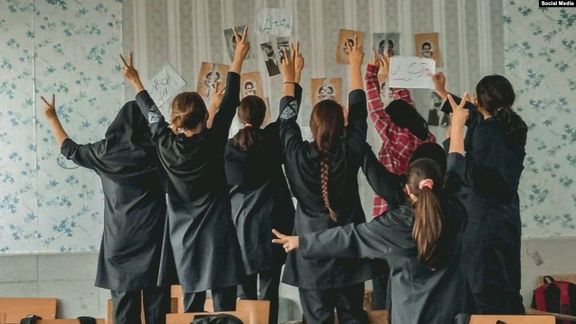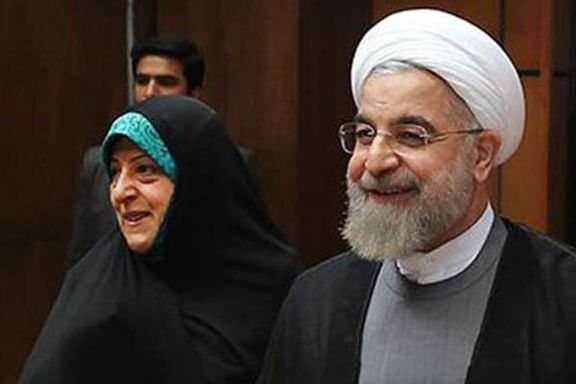Reformist Figures Shun Regime Change Fearing ‘Uncertainty’

Leading reformist figures in Iran have recently made statements that reveals their interest in preserving the status quo despite popular protests aimed at changing the political system.

Leading reformist figures in Iran have recently made statements that reveals their interest in preserving the status quo despite popular protests aimed at changing the political system.
In several articles over the past weeks, reformist commentators expressed concern that the situation is going toward a revolution while they claimed the nation wanted only to reform the system and warned that a dramatic change may lead to undesirable uncertainty.
On November 14, two reform figures, former President Mohammad Khatami and former vice president Massoumeh Ebtekar broke their silence after more than 8 weeks about a possible demise of the regime and voiced their opposition to dramatic changes in the Iranian political system.
Khatami, revealed his opposition to regime change by saying that it was "neither possible, nor desirable." Nonetheless, he warned that if the current state of affairs continues, the ground is paved for a looming social collapse.
Khatami called on the regime "to reform itself," but at the same time acknowledged that "a large part of the society shares the protesters' dissatisfaction" of the current political system.

On the same day, Ebtekar said in a commentary in the reformist daily Etemad in Tehran, "The new generation of Iranians believes it is not only the Iranian government, but the entire Iranian political system that is inefficient."
She added, "The Iranian government has been lagging behind the society for several years now. By not recognizing natural social developments, the Iranian government has created the current crisis for itself."
Ebtekar said elsewhere in her commentary: "the Iranian state television and other organizations with hefty government budgets which are responsible for keeping the public informed have failed to listen to young Iranians and their demands." She added that "Unfortunately, many religious and propaganda organizations deny the pluralism that exists in Iranian society and wish to dictate whatever that serves their interests."

The new generation that has grown up with the Internet and social media, believes to be a citizen of the world and cannot tolerate the traditional guidelines, Ebtekar said, adding that this has created a generational gap in Iran.
In an article carried by Etemad newspaper, Iranian American author and sociologist Asef Bayat wrote in a response to reformist commentator Abbas Abdi who had opposed regime change and expressed concern that the current protests might lead to a tragic end for Iranian society, "The tragedy of reformism in Iran is that Iranian reformists cannot further any reforms because they have been pushed out of the power circle, and at the same time they cannot agree with radical changes in Iran because by definition they are reformers and not revolutionaries."
Bayat wrote that "individuals like Abdi fear the cost of a revolution. They fear violence, instability and damage to the country's infrastructure. Ordinary people are also afraid of the cost of a revolution, but they risk everything when they see that all roads to reform are blocked.
"However, some people talk about the risks involved in a revolution as though the current situation is risk-free like a paradise," Bayat said adding that the costs of the current situation include an average 20 percent inflation, high unemployment particularly among educated Iranians, high recession in the 2010s, the collapse of the middle class and pushing 45 percent of the population under the poverty line, destruction of the country's environment and many of its villages, and the decline of Iranians' status in the world because of the government's adventurist policies.
Bayat argued that Mahsa Amini, the young woman murdered in custody of morality police, the workers in Assalouyeh oil and gas fields and millions of Iranian men and women are being constantly humiliated, losing their hopes and their lives. But those who have chosen not to submit to this gradual death have taken collective action to change the status quo.